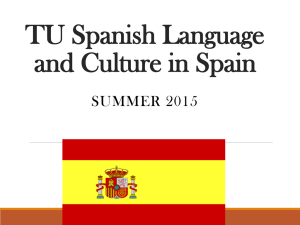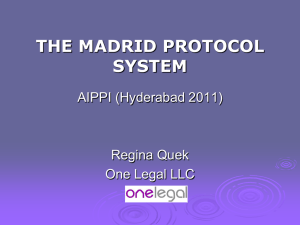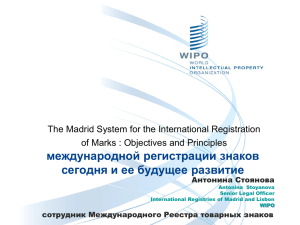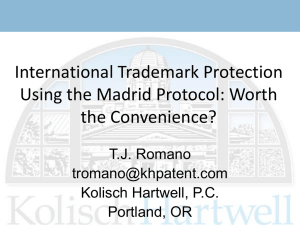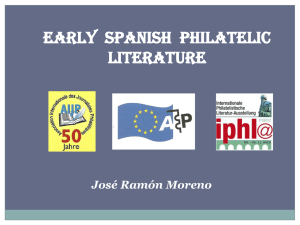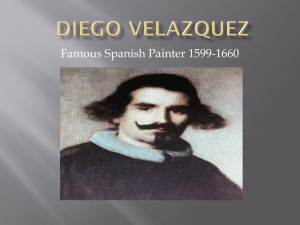Resolutions | English
advertisement
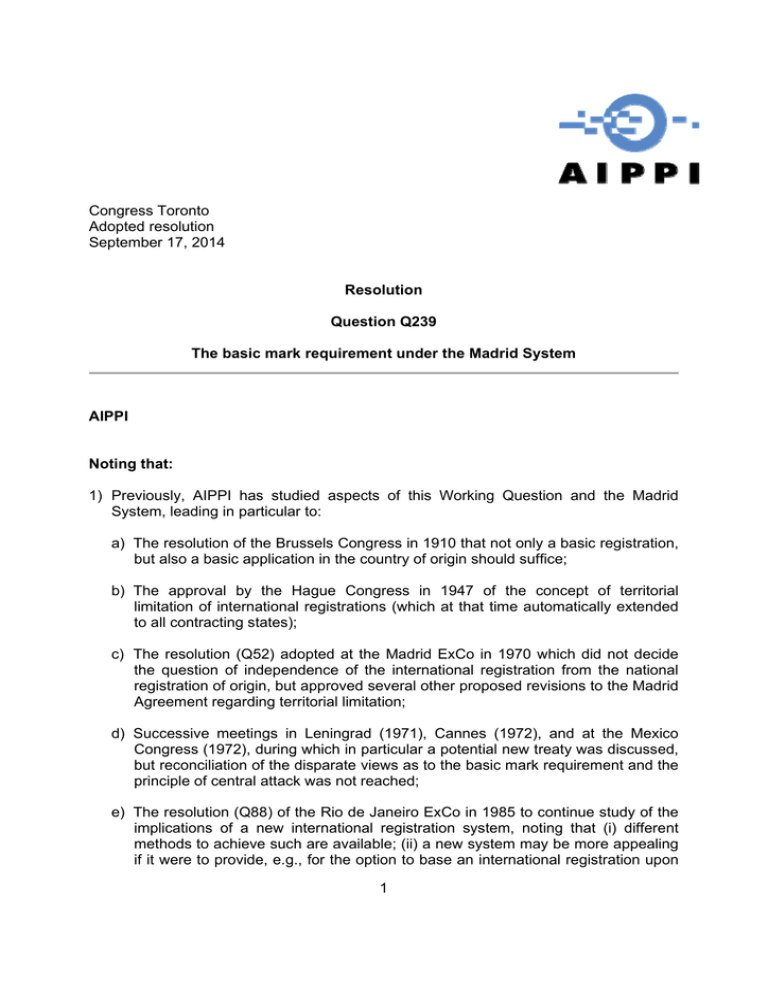
Congress Toronto Adopted resolution September 17, 2014 Resolution Question Q239 The basic mark requirement under the Madrid System AIPPI Noting that: 1) Previously, AIPPI has studied aspects of this Working Question and the Madrid System, leading in particular to: a) The resolution of the Brussels Congress in 1910 that not only a basic registration, but also a basic application in the country of origin should suffice; b) The approval by the Hague Congress in 1947 of the concept of territorial limitation of international registrations (which at that time automatically extended to all contracting states); c) The resolution (Q52) adopted at the Madrid ExCo in 1970 which did not decide the question of independence of the international registration from the national registration of origin, but approved several other proposed revisions to the Madrid Agreement regarding territorial limitation; d) Successive meetings in Leningrad (1971), Cannes (1972), and at the Mexico Congress (1972), during which in particular a potential new treaty was discussed, but reconciliation of the disparate views as to the basic mark requirement and the principle of central attack was not reached; e) The resolution (Q88) of the Rio de Janeiro ExCo in 1985 to continue study of the implications of a new international registration system, noting that (i) different methods to achieve such are available; (ii) a new system may be more appealing if it were to provide, e.g., for the option to base an international registration upon 1 a home application and not only on a home registration; and (iii) the subject of limited time dependency (central attack) merited further study; f) The resolution of the London Congress in 1986 to continue study of all solutions which could result in a more universal system for the international registration of marks, referring to draft Protocols to the Madrid Agreement and noting: (i) confirmation of the Rio de Janeiro resolution that the basis for an international registration must be possible upon a home application and not only a registration; (ii) that an international registration should continue to be initiated through the national office of the home country; (iii) that certain countries have the opinion that no national basis should be required; and (iv) that a system of transformation would create difficulties, even if other difficulties may be reduced; g) The resolution of the Amsterdam ExCo in 1989 confirmed the London resolution that an application in the country of origin can be the basis of an international registration and repeated the London Congress reservations regarding transformation; 2) Meetings of a particular WIPO working group (the “Working Group on the Legal Development of the Madrid System for the International Registration of Marks“) have been taking place since 2005 (and before that of the "Working Group on the Modification of the Common Regulations under the Madrid Agreement Concerning the International Registration of Marks and the Protocol Relating to that Agreement", since 2000) to discuss the development of the Madrid System, including the basic mark requirement; 3) The Trademark Committee of AIPPI (Q212, May 22, 2012) made a recommendation to the AIPPI Bureau that the basic mark requirement should be the subject of further study in the form of a new working question, and recognized the basic mark requirement is a complex issue and its discussion has merit, leading to the development of this working question. Considering that: 1) The Madrid system was adopted initially on 14 April 1891 and is an important international system for facilitating the registration of trademarks throughout the world. Since its adoption, it has been a growing success and now counts many members. 2) Initially the Madrid system consisted of one convention, called the Madrid Arrangement, which was revised several times (lastly in 1979). Thereafter this convention was completed by an additional one, called the Madrid Protocol, which was adopted on 27 June 1989. The Madrid Protocol provides for a very similar system, with some rules that were adapted aimed at overcoming reasons that were impeding some countries from joining. Countries have the possibility to be members of the Arrangement, the Protocol, or both. Actually, the majority of the countries that 2 were already members of the Arrangement became part of the Protocol, and now, with the abrogation of the so called “clause de sauvegarde”, when countries are part of both Conventions, between themselves and in their relations with countries which are members of the Protocol only, they are bound by the Protocol. 3) From the beginning of the adoption of the Madrid system, one of its major rules required the trademark applicant, i.e. the candidate to use the system, to be the registered holder of a trademark accepted for registration in his country of origin (the so-called "basic mark requirement"). On the basis of this registration in the country of origin, the trademark holder can then file an international registration designating one or several members of the system. Under the Madrid Protocol, a basic application also suffices. 4) It is important to note that the international registration system is governed by the rule of triple identity (identity of the holder, identity of the sign and identity of the list of goods and/or services), which means that when an international registration is to be filed, it has to be in the same name as the basic mark, must be filed for the same sign and must designate the same list of goods or services (or some of these goods or services, but not different ones). 5) Another specificity of the international registration system consists in the rule of dependency of the international registration on the basic mark during five (5) years as from the date of the international registration. As a consequence of this rule of dependency, if the basic mark no longer enjoys protection (e.g. because it is invalidated), the protection resulting from the international registration can no longer be invoked as well, for all the designated countries of the international registration even if in these countries e.g. the obstacle that led to the cancellation of the basis trademark, did not exist (in case of a third party attack, this is also called the “central attack”). Several countries in fact initially refused to join the Madrid system because they considered the system to be too dangerous and costly if they were to wait for the end of the dependency period to make sure that the fees engaged in the international registration were not engaged in vain. 6) In the Madrid Protocol, the dependency rule was rendered more flexible so that if the basic mark is cancelled totally or partially during the five years dependency, the trademark holder can convert the international registration into national or regional applications, keeping the original date of filing and the original list of goods and/or services (the so-called "transformation option"). 7) There has been and is discussion on several aspects of the basic mark requirement under the Madrid System. In particular, this concerns the question whether (i) the basic mark requirement and (ii) the dependency should be abolished, changed and/or frozen. Also, concerns and questions have e.g. been raised in the context of the triple identity rule, and in the context of translations, transliterations and transcriptions. 3 8) Arguably, although the basic mark requirement does impose a number of conditions that may deter some trade mark owners from availing of the Madrid system (e.g. the requirement to register a trademark in Latin script in a home country with a different writing system and the triple identity rule), the requirement still performs an important role in the proper functioning of the Madrid system (e.g. allowing a convenient first port of call in the home jurisdiction and an easy extension to other countries). A change (e.g. allowing a direct central filing with WIPO) may be difficult to achieve politically and changing a well working system into an uncertain new system is not necessarily a logical choice. 9) Arguably, although the dependency is at times criticised (e.g. for having effect even in countries where the basis for cancellation of the basic mark does not apply), alongside the option of transformation which often applies, the dependency overall provides a fair balance between safeguarding the interests of the trade mark owner (who can efficiently obtain a broad geographic coverage of its mark by designating members) and third party interests, in particular by providing a centralised mechanism for the assertion of earlier rights. 10) This resolution will focus on AIPPI's view regarding abolition and potential changes to the basic mark (and dependency) requirement under the Madrid System. AIPPI believes further studies should be undertaken in relation to potential changes of the basic mark requirement and to the role of Offices (including WIPO) in tasks such as the classification of goods and services. Resolves that: 1) AIPPI does not support an abolition of the basic mark requirement. 2) AIPPI does not support an abolition or freeze of the dependency on the basic mark. 3) AIPPI supports a reduction of the dependency period from five years to three years, as such would provide a more even balance between the interests of the trademark owner on the one hand (providing an earlier level of certainty) and third parties on the other hand. 4
